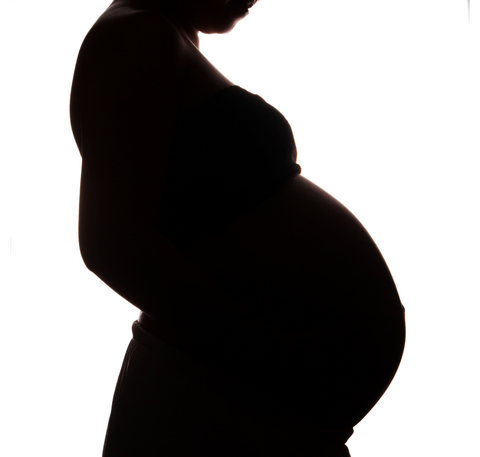
THROMBOPHILIA

DIVISION OF HEMATOLOGY

Scenario 2 |
||||||||||||||||||||||
Expert Opinion
|
Key points:
The question: Do you think thrombophilia testing is indicated in this patient? Yes No Which of the following tests would you order assuming the patient has given her consent? (please check all that apply)
None On a scale from -1 (less likely to screen) to +1 (more likely to screen), how does the following information affect your choice to screen?
Issues addressed: Plaster immobilization/surgery:In this scenario, the patient has had a symptomatic DVT precipitated by both surgery and casting. It has been known for many years that bed rest (usually defined as longer than 3 days) or major surgery within four weeks is a major risk factor for VTE.1 However, the interactions of thrombophilias in these high-risk situations are much more unclear. A 2008 study found that after the exclusion of those with cancer, surgery, plaster casts or bed rest beyond four days, patients with minor injuries were at increased risk of VTE for up to ten weeks following the injury. FVL carriers were at a disproportionate 50 times greater risk than non-carriers.2 Other studies have confirmed a risk associated with activated protein C resistance, prothrombin G20210A, antiphospholipid syndrome and surgery.3 However, a systematic reviewed failed to find an association between thrombophilias and VTE after orthopedic surgery with the exception of prothrombin and isolated PE.4 Current guidelines highlight the need to make decisions regarding prophylaxis on a case by case basis and presurgical screening is NOT recommended except in circumstances of highly suggestive personal or family history of VTE.5 Further studies are needed to elucidate whether thrombophilia testing after VTE in context of immobilization or surgery is warranted. back to issues Irritable Bowel Syndrome (IBS):There is no evidence that inherited or acquired thrombophilias are more common in IBS patients. This comorbidity should not affect decisions to test or not test subjects. back to issues Pre-pregnancy counseling:Pregnancy is a known risk factor for VTE. Multiple physiologic changes occur which alter Virchow’s triad and promote a hypercoagulable state.6 A gravid uterus causes venous stasis and levels of coagulation and anticoagulation factors fluctuate.7 Between 1991 and 1999, PE was the number one cause of maternal mortality accounting for 20 percent of all deaths in the United States.8 Large cohort studies found VTE in 200 per 100,000 patient-years with DVT three times as common as PE. The highest risk period is postpartum.9 Recently, there has been a lot of literature published in the area of thrombophilias and peripartum. Thrombophilia testing has been proposed in the setting of VTE prior to or during pregnancy in an effort to decide on duration of anticoagulation or secondary prevention in subsequent pregnancies. Studies have shown increased risk of recurrence if thrombophilia tests are positive.10 However, prospective randomized control trials demonstrating benefit of altered anticoagulation strategies in these patients are largely lacking, and existing recommendations are driven by expert opinion. The 2008 ACCP guidelines have made several recommendations on this topic and divide patients into lower risk and higher-risk thrombophilias. High risk states include Antithrombin deficiency, antiphospholipid antibody syndrome and compound heterozygotes such as factor V Leiden/prothrombin G20210A carriers. In patients with prior VTE who are known to carry these mutations, anticoagulation is recommended during the entire pregnancy period. The same recommendation is given for Antithrombin deficient subjects even in the absence of previous VTE as it is thought to be the most thrombogenic inherited thrombophilia.16 In subjects known to possess any of the other higher-risk thrombophilias, but without previous history of VTE, anticoagulants are recommended for the postpartum period alone with individualized consideration in the antepartum period. 23 Furthermore, a link between intrauterine growth restriction, abruptio placentae, recurrent fetal loss (defined as three or more clinically recognized pregnancy losses prior to fetal viability) and pre-eclampsia and inherited or acquired thrombophilias has been identified in some studies.11,12,13,14 Evidence is also accumulating for the use of low molecular weight or unfractionated heparin during pregnancy in the context of thrombophilia plus prior pre-eclampsia, IUGR, abruption, recurrent fetal loss, or adverse pregnancy outcomes. (For more on recurrent pregnancy loss, see Infertility section under scenario 5 ) These trials are well summarized in an obstetrical review published in 2007.15 Presently, recommendations for thrombophilia screening in the context of pregnancy or pre-pregnancy are highly controversial. While there is evidence to support a role for thrombophilias in pregnancy-related VTE, the benefits of anticoagulation outside usual recommendations lack well-designed evidence. Recommendations for screening before and during pregnancy should be assessed on an individual basis. Proposed alternatives to thrombophilia screening include recommendations for anticoagulation based solely on personal or family history. Evidence for anticoagulation in thrombophilic patients with adverse pregnancy outcomes is more robust but still requires careful consideration and counseling. In our hypothetical scenario, screening is not indicated as the event occurred during a high-risk situation and for the reasons presented above. However, knowing that the patient does not intend on having any children simplifies this decision. back to issues Arterial thrombosis:Arterial thrombosis and thrombophilia is an area on ongoing research. Antiphospholipid syndrome is clearly established as a risk factor for ischemic stroke, especially in young patients, but other thrombophilias remain more elusive.17 In a cohort study published in 2008, investigators found a higher risk for arterial thromboembolic events in individuals with protein C or S deficiency but not Antithrombin deficiency before the age of 55 years, which was independent of prior venous thromboembolism. The risk was almost 5 times greater even after adjusting for atherosclerotic risk factors.18 In a German study of 1081 registered patients with previous VTE, only lupus anticoagulant significantly increased the risk of myocardial infarction.19 The EPCOT trial also found an increased risk of myocardial infarction or ischemic stroke with thrombophilias, but the incidence was much lower than the risk of VTE.20 Inherited thrombophilias have also been implicated in neonatal stroke.21 In general, most experts agree that a role for thrombophilias in the pathogenesis of arterial thrombosis is modest at best and most patients do not require thrombophilia screening.22 Possible exceptions may include recurrent or severe arterial thromboses at a young age. back to issues 2. VanStralen KJ, Rosendaal FR, and CJM Doggen. Minor injuries as a risk factor for venous thrombosis. Arch Intern Med. 2008. 168(1):21-26. 3. White RH and MC Henderson. Risk factors for venous thromboembolism after total hip and knee replacement surgery. Curr Opin Pulm Med. 2002. 8:365-371. 4. Wu O et al. Thrombophilia and venous thromboembolism after hip or knee replacement surgery: a systematic review. J Thromb Haemost. 2005. 3:811-3. 6. Mahieu B et al. Hemostatic changes and acquired protein C resistance in normal pregnancy. Blood Coagul Fibrinolysis. 2007. 18(7):685-8. 7. Scifres CM and GA Macones. The utility of thrombophilia testing in pregnant women with thrombosis: fact or fiction? Am J Obstet Gynecol. 2008. 199:344e1-7. 8. Chang J et al. Pregnancy-related mortality surveillance – United States, 1991 – 1999. MMWR Surveill Summ. 2003. 52:1. 9. Heit JA et al. Trends in the incidence of venous thromboembolism during pregnancy or postpartum: a 30-year population-based study. Ann Intern Med. 2005. 143:697. 10. Brill-Edwards P et al. Safety of withholding heparin in pregnant women with a history of venous thromboembolism. NEJM. 2000. 343:1439-44. 11. Howley HE, Walker M and MA Rodger. A systematic review of the association between factor V Leiden or prothrombin gene variant and intrauterine growth restriction. Am J Obstet Gynecol. 2005. 192:694-708. 12. Alfirevic A, Roberts D and V Martlew. How strong is the association between maternal thrombophilia and adverse pregnancy outcome? Eur J Obstet Gynecol Reprod Biol. 2002. 101:6-14. 13. deVries JL et al. Hyperhomocysteinaemia and protein S deficiency in complicated pregnancies. BJOG. 1997. 104:1248-54. 14. Gris JC et al. Case-control study of the grequency of thrombophilic disorders in couples with late foetal loss and no thrombotic antecedent – the Nimes Obstetricians and Haematologists Study 5 (NOHA5). J Thromb Haemost. 1999. 81:891-9. 15. Duhl AJ et al. Antithrombotic therapy and pregnancy: consensus report and recommendations for prevention and treatment of venous thromboembolism and adverse pregnancy outcomes. Am J Obstet Gynecol. 2007. 197:457e1-21. 16. Lockwood CJ. Inherited thrombophilias in pregnant patients: detection and treatment paradigm. Obstet Gynecol. 2002. 99:333-41. 17. Gromnica-Ihle E and W Schossler. Antiphospholipid syndrome. Int Arch Allergy Immunol. 2000. 123(1):67-76. 18. Mahmoodi BK et al. Hereditary deficiency of protein C or protein S confers increased risk of arterial thromboembolic events at a young age. Circ. 2008. 118:1659-67. 19. Linnemann B et al. Are patients with thrombophilia and previous venous thromboembolism at higher risk to arterial thrombosis? Thromb Research. 2008. 121:743-50. 20. Vossen CY and FR Rosendaal. Risk of arterial thrombosis in carriers of familial thrombophilia. J Thromb Haemost. 2006. 4:916-8. |
|||||||||||||||||||||
